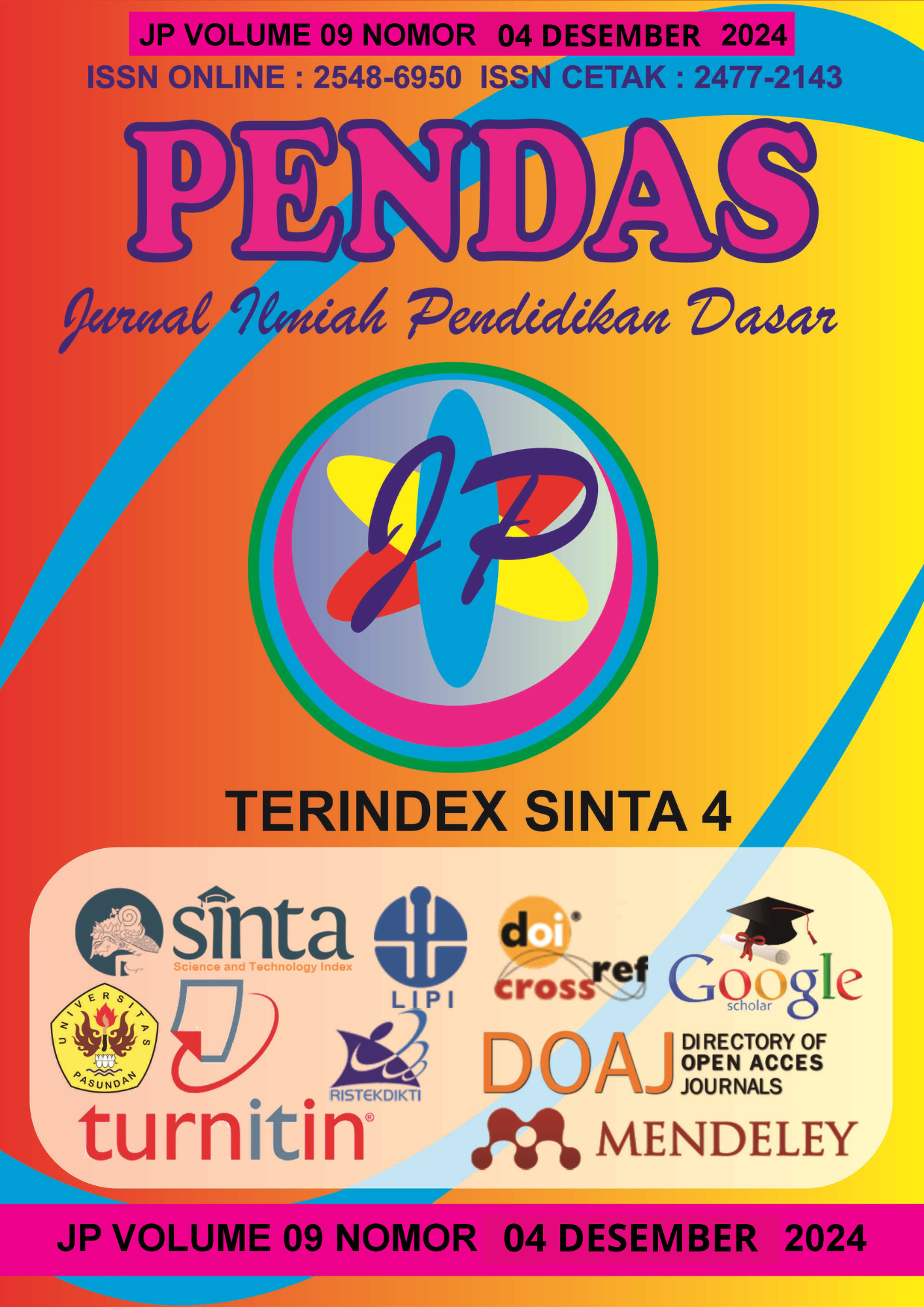PENGEMBANGAN MEDIA PEMBELAJARAN ANIMASI BERBASIS APLIKASI CANVA PADA PEMBELAJARAN BANGUN DATAR KELAS IV SEKOLAH DASAR
DOI:
https://doi.org/10.23969/jp.v9i04.22495Keywords:
Animation, Canva, Flat Shapes, Learning Media, Mathematics EducationAbstract
This research is motivated by the limited use of engaging, interactive, and easy-to-understand learning media, which are essential for fostering students' enthusiasm and motivation to learn. This condition highlights the need for developing learning media that are not only relevant to students' needs but also practical for teachers to implement. The purpose of this research is to evaluate the validity and practicality of Android-based learning media designed using Canva. This study adopts a Research and Development (R&D) approach using the ADDIE model, which consists of five systematic stages: Analyze, Design, Development, Implement, and Evaluate. The research subjects include three experts as validators, one fourth-grade teacher, and 20 fourth-grade students from SDN 45 Bungo Pasang. To collect data, this study employs several instruments, including expert validation sheets to assess the validity of the media and questionnaires to evaluate the practicality of the learning media based on the responses of teachers and students.
Downloads
References
Anggraini, D., & Ningsih, Y. (2022). Development of Android-Based Learning Media Using the CapCut Application in Integrated Thematic Learning in Grade IV Elementary School. Journal of Practice Learning and Educational Development, 2(1), 35–43. https://doi.org/10.58737/jpled.v2i1.30
Hanifah, R., & Arwin. (2022). Pengembangan Media Pembelajaran Tematik Terpadu Berbasis Video Animasi Menggunakan Aplikasi Adobe Premiere Pro di Kelas IV Sekolah Dasar. Journal of Practice Learning and Educational Development, 2(2), 88–92. https://doi.org/10.58737/jpled.v2i2.48
Hydayat, A., Ariani, Y., Dasar, G. S., & Padang, U. N. (2022). Pengembangan Bahan Ajar E-Modul Berbasis Flip PDF Professional Materi Jaring-Jaring Bangun Ruang Sederhana di Kelas V SDN 24 Parupuk Tabing. Jurnal Pendidikan Tambusai, 6(2), 15683–15688.
Purnomo, E. A., & Suparman, S. (2020). Pengembangan Media Pembelajaran Berbasis Android pada Matakuliah Pembelajaran Matematika SD. Journal of Medives : Journal of Mathematics Education IKIP Veteran Semarang, 4(1), 187–195. https://doi.org/10.31331/medivesveteran.v4i1.960
Rahma, A., & Masniladevi, M. (2023). Pengaruh Model Discovery Learning terhadap Pemahaman Konsep Perkalian dan Pembagian Pecahan Kelas V SD. E-Jurnal Inovasi Pembelajaran Sekolah Dasar, 10(2), 75. https://doi.org/10.24036/e-jipsd.v10i2.10406
Toma, A. A., & Reinita, R. (2023). Pengembangan Media Pembelajaran Canva Berbasis Model Problem Based Learning di Kelas IV Sekolah Dasar. Sekolah Dasar: Kajian Teori Dan Praktik Pendidikan, 32(2), 162–177. https://doi.org/10.17977/um009v32i22023p162-177
Wahyu, M., Hanifah, N., Rikhayana, N. A., & Ruby, A. C. (2024). Analisis Penggunaan Media Video Pembelajaran untuk Meningkatkan Pemahaman Siswa Slow Learner pada Materi Penerapan Sila-Sila Pancasila di Sekolah Dasar. 4, 34–44.
Wulan, S., Zainuddin, F., Yamin, M., Selviana, S., & ... (2024). Pengembangan Media Pembelajaran Smart Card pada Mata Pelajaran Akidah Akhlak Kelas VI di MI 01 Bonepute. Jurnal Pendidikan …, 12(4), 211–222. https://p3i.my.id/index.php/refleksi/article/view/299%0Ahttps://p3i.my.id/index.php/refleksi/article/download/299/290
Zainil, M., Helsa, Y., Ahmad, S., Ningsih, Y., Ningsih, H., & Yanti, W. T. (2019). The differences in geometry cognitive learning results using ICTAdobeFlash CS6 program. Journal of Physics: Conference Series, 1321(2). https://doi.org/10.1088/1742-6596/1321/2/022090
Downloads
Published
Issue
Section
License
Copyright (c) 2025 Pendas : Jurnal Ilmiah Pendidikan Dasar

This work is licensed under a Creative Commons Attribution 4.0 International License.














































